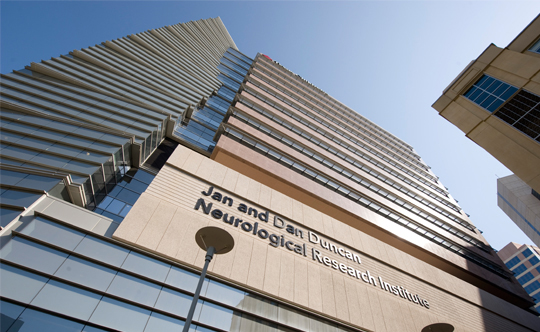
Science Translational Medicine publishes a white paper about NRI symposium on catastrophic epilepsy
 Children with catastrophic epilepsy experience severe seizures frequently and often have cognitive and behavioral disabilities such as autism. For these children, commonly prescibed anti-seizure drugs are not effective in curbing the seizures or accompanying developmental disabilities.
Children with catastrophic epilepsy experience severe seizures frequently and often have cognitive and behavioral disabilities such as autism. For these children, commonly prescibed anti-seizure drugs are not effective in curbing the seizures or accompanying developmental disabilities.
In April of this year, 300 people convened at the Jan and Dan Duncan Neurological Research Institute (NRI) at Texas Children’s Hospital and Baylor College of Medicine to highlight recent cutting-edge research on the causes of the catastrophic epilepsy and new ways to treat them.
This unique two-day symposium provided a common platform for physicians, academic and pharmaceutical researchers, families and patient advocates, representatives from the NIH, the FDA, private foundations, and publishing entities to share their unique perspectives and insights about various childhood epileptic syndromes.
Interestingly, in addition to attending various scientific seminars, attendees were also invited to participate in panel discussions and workshops. Especially crucial for guiding the direction of these deliberations were contributions from the parents of children with these disorders.
These discussions led to a number of recommendations to accelerate the pace of research and drug discovery for debilitating epileptic disorders, that have been published as a review in the November 2014 issue of Science Translational Medicine .
This was the second biennial NRI symposium on neurological diseases cosponsored by the journal Science Translational Medicine. The first NRI symposium on autism was held in 2012. The next symposium will focus on Neurodegenerative diseases and is scheduled to be held in 2016.